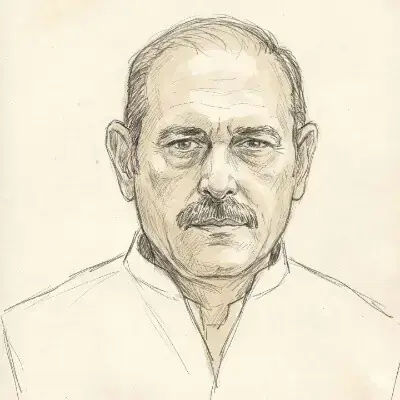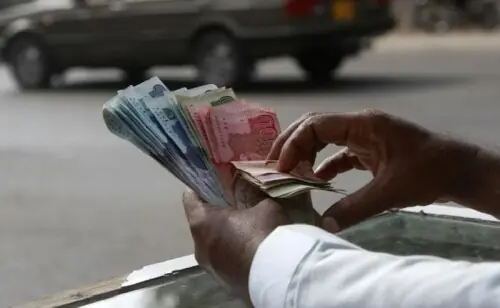WHILE Islamabad looks to Kabul to rein in the outlawed Tehreek-i-Taliban Pakistan (TTP), the Afghan Taliban regime is adamant that the group is not operating out of Afghanistan and, as such, their attacks on Pakistani soil are an internal issue that Pakistan must deal with itself.
When the Afghan Taliban seized Kabul in Aug 2021, their willingness to engage with Pakistan was taken as a silver lining, and there was a high degree of optimism that they would use their influence on the TTP and help Pakistan restore order in the bordering province, more so in the troubled tribal districts.
The new rulers of Kabul initially offered to facilitate talks between Islamabad and the TTP leadership in Kabul, and several rounds of overt and covert meetings were held.
But statistics show that what has transpired has been contrary to expectations; the number of casualties — including police, civilians and other law enforcement officials — has more than doubled in the period since the Ashraf Ghani regime was ousted.
The TTP, which took shelter in Afghanistan following a military operation in 2014, have been sporadically carrying out attacks across Pakistan ever since, but their activities were mostly focused in Khyber Pakhtunkhwa.
The militant group saw a resurgence in the second half of 2021, but that was before negotiations began under the auspices of the Islamic Emirate to end hostilities.
The group’s attacks, however, continued even after they agreed to an indefinite ceasefire, saying those attacks were either defensive or retaliatory in nature.
There has, however, been a dramatic escalation since the banned group announced an end to the ceasefire on Nov 28, 2022, with target killings, suicide bombings and the like becoming a near-daily occurrence once again.
Official statistics show that the number of attacks by militant groups in KP under the Ghani regime (Jan 2021 to Nov 2021) was 218, but this figure almost doubled, reaching 420 in the time since the Afghan Taliban seized power in Kabul.
In the same period, civilian casualties (including the dead and injured) rose by a staggering 169 per cent, while police casualties registered a 43.7pc rise.
According to official statistics, there were a total of 189 attacks against the KP police between Jan 1, 2022 and Dec 23, 2022. Of these, 148 were carried out by the TTP and its various affiliates alone.
Again, out of the 98 policemen killed in militant attacks until Dec 23, TTP has been responsible for at least 84 of the deaths.
The Pakistan branch of the militant Islamic State-Khorasan (IS-K) group was behind 33 attacks that resulted in the death of 12 policemen.
Both groups are believed to be based in Afghanistan with sleeper cells operating across the country. However, it has been Khyber Pakhtunkhwa that has borne the brunt of their attacks, with the bloodiest occurring in Mar 2022, when IS-K claimed a bombing at a Shia mosque in Peshawar.
In recent days, the tribal districts of Bajaur, North and South Waziristan have been the worst hit. Due to its proximity to Waziristan, the southern district of Lakki Marwat has also seen a spike in militant attacks lately.
In the past three months alone, the TTP has claimed at least 141 attacks: 39 in September, 43 in October and 59 in November.
‘Not in Afghanistan’
While there is growing fear and anxiety in civil society circles over the return of militancy and violence after years of peace in much of the province, both the Afghan Taliban and the TTP are claiming that the attacks happening inside Pakistan have no links with Afghanistan.
Although they have been echoing the mantra that Islamabad wants to hear, i.e. Afghan soil should not be used against Pakistan, for several months, the Afghan Taliban are now saying that the TTP leadership is not in Afghanistan.
“This is our principled stand and our strategic policy. We shall never permit anyone use Afghan soil against Pakistan.”, Zabihullah Mujahid, spokesperson of the Afghan government told Dawn.
“We don’t want instability in Pakistan… we want peace and stability [there],” he said, but insisted that the impression that the TTP leadership is in Afghanistan was incorrect.
“Some of their representatives might have come for the negotiations with the Pakistani government. They are not here, nor are they allowed to stay here,” he maintained.
Pakistan, he said, needed to work on the causes that leads to instability in the country.
This stance now mirrors that of the outlawed TTP. In a statement issued on Dec 19, the banned group claimed that a “vast portion of the tribal areas is under our occupation, where a large number of mujahideen are present along with their leadership. There is no need for us to use the soil of Afghanistan.”
Even during the latest episode at the Bannu counterterrorism centre, when the hostage-takers sought safe passage to Afghanistan, the TTP was quick to make corrections.
It said that the militants inside the compound, having been “incarcerated for years”, did not have a full understanding of the situation and had erroneously mentioned Afghanistan.
In the past three months alone, the TTP has claimed 39 attacks in September, 43 in October and 59 in November. But lately, they have taken to insisting that all these attacks are being launched from inside Pakistan.
Leaning on Kabul
Even before the Taliban took over, Pakistan had been pressing the previous administration in Kabul to take action against the TTP and other groups, and had blamed Afghan and Indian intelligence agencies for fomenting trouble in the province bordering Afghanistan.
Pakistani officials familiar with the situation say that since the National Security Committee meeting that was called to discuss the negotiations with the TTP in July, no formal meeting has been convened to take stock of the deteriorating security situation in KP, despite calls from parties across the political spectrum.
There are some indications that after the initial ambivalence and policy confusion post-TTP negotiations, the security apparatus has been given some sort of green light to go on the offensive, particularly after the change of command at General Headquarters.
However, clear policy guidelines on internal security and the future of talks with the TTP are still awaited.
There is also a view in official circles that it is time to speak directly to the interim regime in Afghanistan, instead of the TTP. While there is a mechanism to discuss this and other cross-border issues – such as the violent flare-ups at the Chaman border – at the level of joint coordination committees, there has been little headway on any of these fronts.
Published in Dawn, December 24th, 2022

































